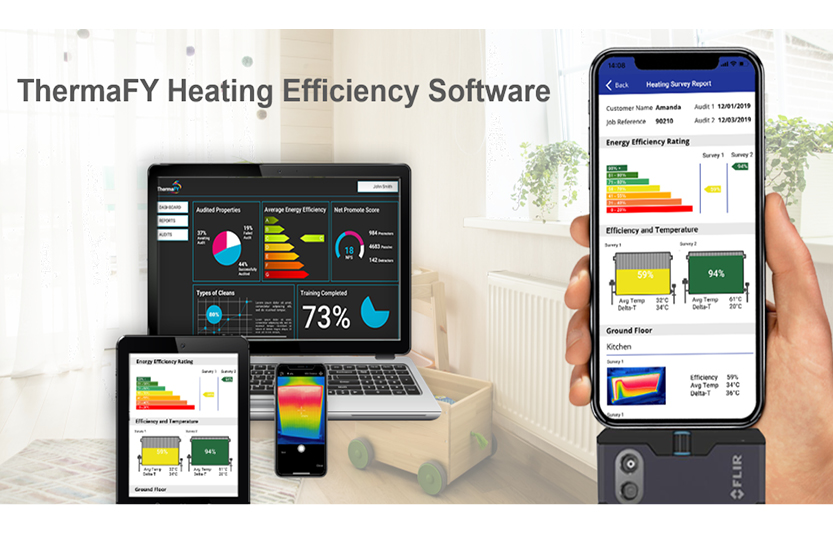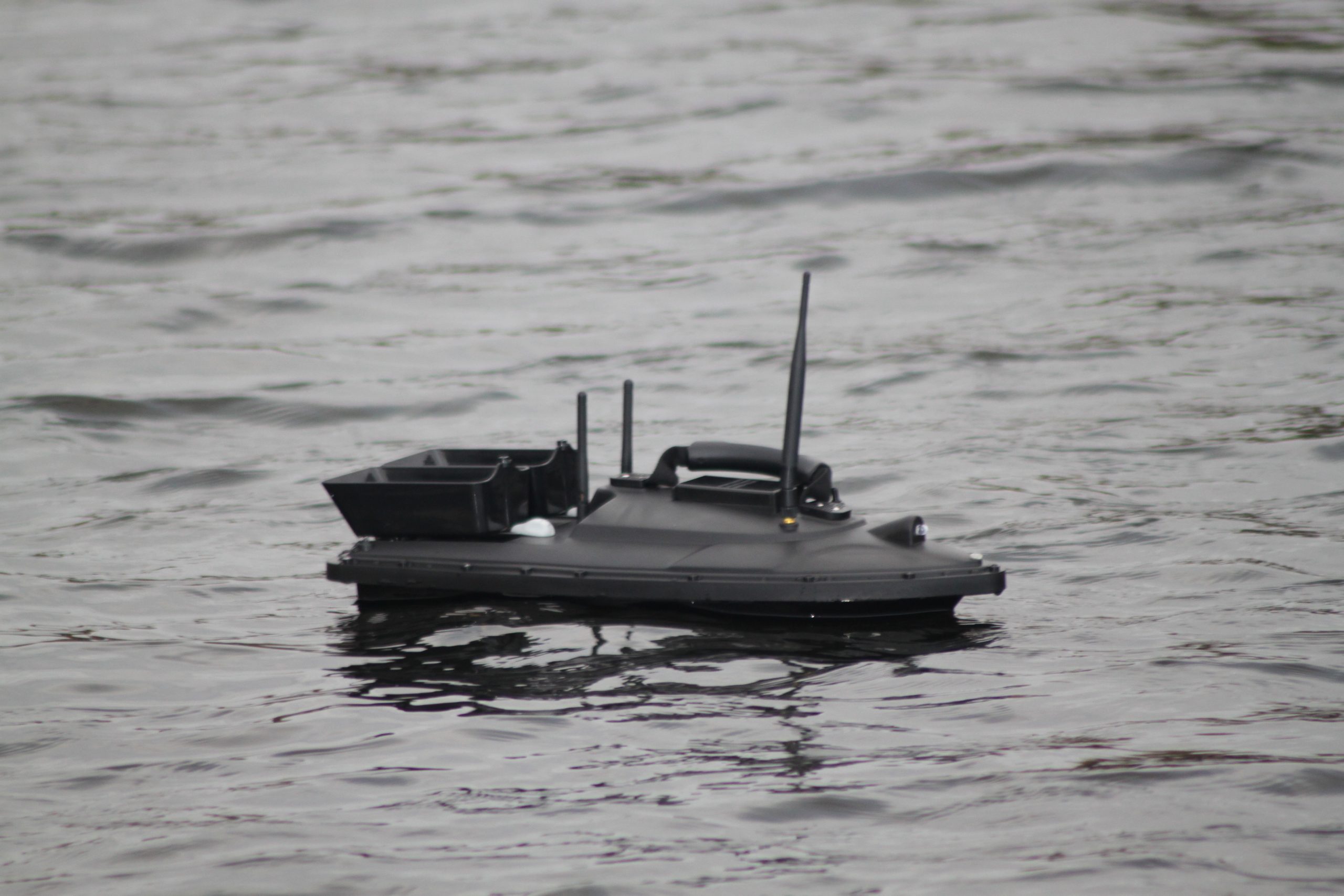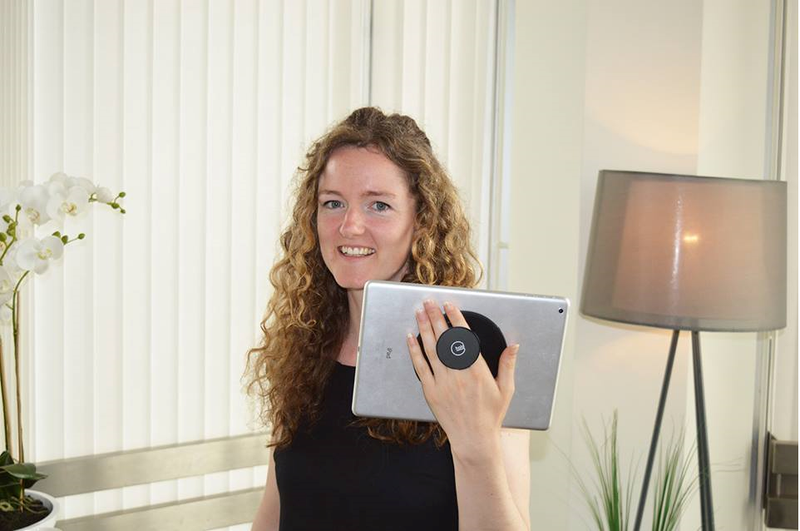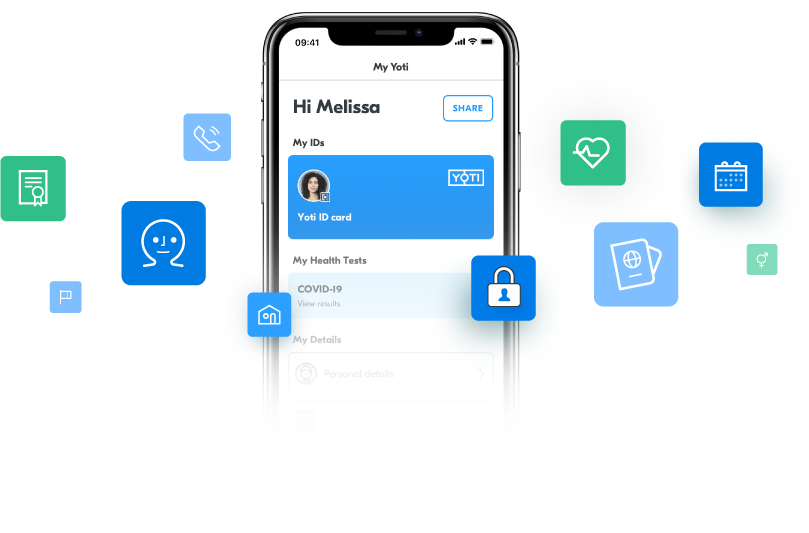Case Study
ThermaFy

Partners
Fife College
Robert Gordon University
Sectors
Energy
Engineering and Technology
Regions
Borders
Background
Currently, there isn’t a simple way for a heating engineer to determine how dirty a heating system is. This leads to inefficiencies, breakdowns, unnecessary costs and disruption for occupants.
Thermafy Group Ltd. has developed ThermaFy, a digital platform that can determine how dirty a heating system is. It is a leader in real-time thermal analysis; their software allowing the collection and interpretation of thermal data from a smartphone. The software highlights inefficiencies in a heating system and offers a treatment plan that improves efficiency, thus saving money for the customer as well as reducing carbon emissions.
Their current market is the domestic heating industry; working with boiler manufacturers, water treatment companies, installers, surveyors and energy companies.
Challenge
To ensure this software could be rolled out across the industry, it was vitally important that it was easy to use, saving engineers’ time. No training modules currently exist that are designed specifically at educating heating engineers on how to use thermal cameras within the job and it is not possible to purchase off-the-shelf modules.
Developing new training modules would help standardise workplace skills, ensuring that engineers could adopt this software and develop new customer, IT and thermography / site based digital skills.
It was crucial that Thermafy Group Ltd. could provide their future customers with these new skills and extra knowledge to support the benefits of using their software.
Solution
Thermafy Group Ltd. had previously been referred to Fife College by the Fife Economic Partnership to use their specialist facilities in order to develop ThermaFy’s software. It was during these tests that Fife College realised that the company needed more engagement with the end users, the engineers. Together, they submitted an application to Interface for a Scottish Funding Council Workforce Innovation Voucher, which aims to support innovation by funding the development of a company’s workforce.
The expertise available within Fife College’s gas training centre and their specialist facilities, combined with the expertise of Thermafy Group Ltd. on these new processes and software, helped develop the specialist accredited modules that would enable the industry to adopt new improved working practises, increasing both their productivity and trust with their customers. It is hoped that these training packages will give rise to a new breed of industry engineers with expertise and skills in the field of validating best practice supported by thermography skills.
Benefits
Company – Fife College assisted in helping and improving ThermaFY’s thermal imaging software, used by heating engineers and surveyors to assess buildings in a cost-effective and non-invasive manner. It is a great illustration of a company collaborating with the right academic expertise, in this case, Peter Jones, an academic with 30 years’ experience in the gas industry. With his input, the company quickly realised the importance of providing supplementary training material, allowing engineers to gain a better understanding of how to use the app and the thermal data obtained.
Academic – It is clear that the college has helped out ThermaFY significantly, but the benefits are mutual. The college has been able to engage in applied research and ThermaFY have equipped the lecturers with new knowledge from the concept. This knowledge has been disseminated to apprentices and students who have been able to improve their digital skills and given them the confidence to question existing practices within their organisations and the wider sector.
Follow-On Activity
In August 2020, Thermafy Group Ltd. had an Advanced Innovation Voucher to work with Robert Gordon University approved to develop the ThermaFy product in response to COVID-19. The existing ThermaFy product can already extract enough information from a thermal image to classify a subject as having an elevated temperature or not. The company wish to improve the accuracy of their product with respect to COVID-related fever by considering other reasons for elevated temperature (such as environmental, medical, physical factors). Robert Gordon University will provide expertise in data capture, machine learning and deep neural networks to support the product development. The product has already received significant interest with pilot installations of the first solutions being deployed in two hospitals for the Chelsea and Westminster Hospital NHS Trust – see how it’s working here.


